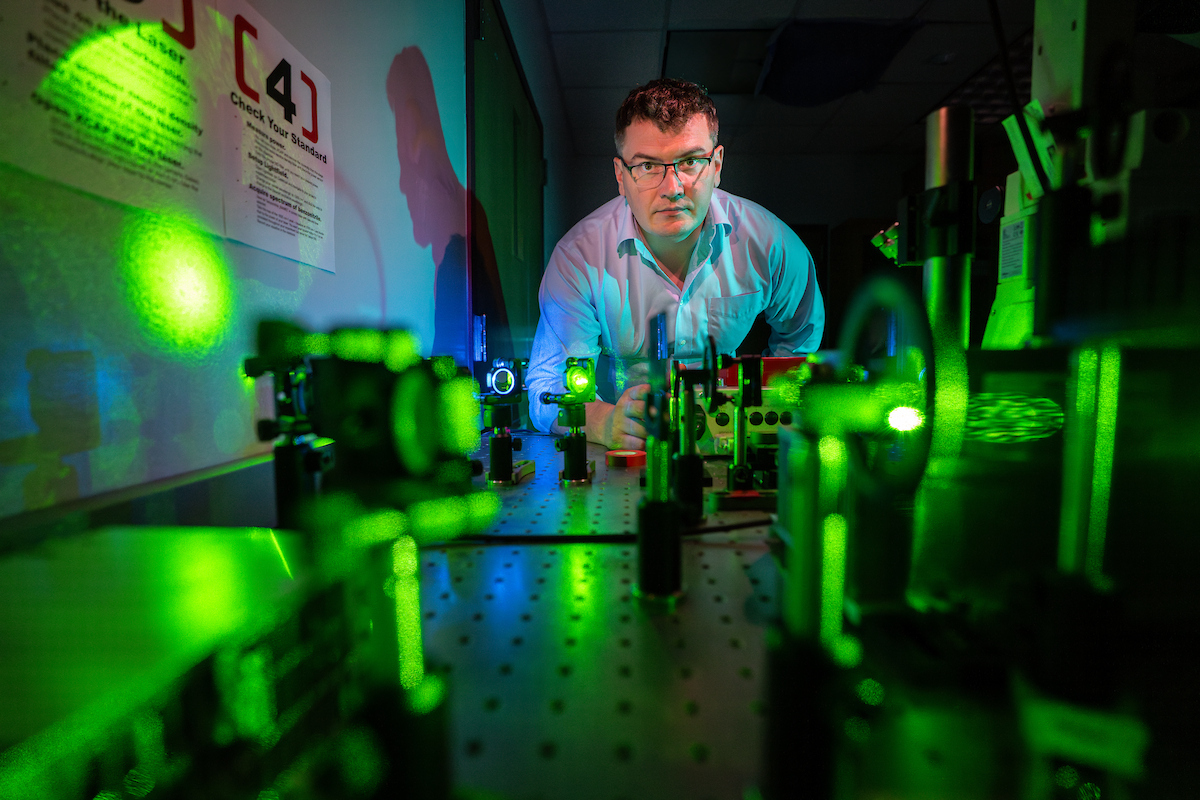Texas A&M AgriLife reopens research and extension facilities at Vernon
Ribbon cutting celebrates recovery and commitment to Texas Rolling Plains
Texas A&M AgriLife reopened several upgraded facilities in Vernon, including office, laboratory and storage spaces, which sustained damage from a tornado in May 2022.
The storm damaged or destroyed eight buildings crucial to the operations of the Texas A&M AgriLife Research and Extension Center at Vernon and Texas A&M AgriLife Foundation Seed, located on the same campus.


The campus underwent roughly $18.7 million in tornado repairs and reconstruction, with $15 million of that amount thanks to an appropriation from the Texas State Legislature. The Texas A&M AgriLife center and Foundation Seed serve as a hub for agricultural research, outreach and education.
Work at the campus supports commodity producers in the region, state and beyond. Texas A&M AgriLife offerings at Vernon include production of high-genetic-quality seeds as well as Texas A&M AgriLife Research and Texas A&M AgriLife Extension Service programs that strengthen Texas agriculture and natural resources.
“The work to rebuild in Vernon reflects Texas A&M’s commitment to agricultural systems that serve our state’s producers and push the envelope for practical agricultural innovation,” said Glen Hager, chancellor of The Texas A&M University System. “The Texas A&M System is always here to help Texans when disaster strikes, and we are proud to have restored and improved our capabilities to serve Texas and the world.”
Repairs and reconstruction for a brighter future in Vernon
After the tornado’s devastation in 2022, the Texas A&M AgriLife Center required full renovation of its main administration building, including a roof and new mechanical units, metal siding, doors and interior flood repairs to ceilings, utility systems, floors and walls. Destroyed vehicles and laboratory and farm equipment were also replaced.
At Foundation Seed, the seed shop and cold storage facilities were rebuilt, along with a chemical storage building and an outdoor chemical storage area. Repairs to the seed building included walls, a front office, additional chemical storage areas and power restoration.
In particular, the renovations are a boon for the laboratory work of AgriLife Research scientists. The storage spaces allow for seed expansions, and office spaces give personnel of AgriLife Extension a place to coordinate regional activities. New equipment enhances AgriLife Extension specialists’ ability to conduct applied research and support the field work of AgriLife Extension agents.
”The center and Foundation Seed are crucial to Texas A&M AgriLife’s work, particularly in this part of the state,” said Jeffrey W. Savell. Ph.D., vice chancellor and dean for Agriculture and Life Sciences. “I am inspired by their commitment to farmers and ranchers, to service and community engagement. The reopening celebrates resilience and progress, and I am excited to see what lies ahead.”
“These infrastructures are critical to our continued support of Texas commodities through leading-edge discoveries and innovations,” said G. Cliff Lamb, director of AgriLife Research. “These tools enable research toward healthy lives and livelihoods in Texas and beyond.”
Parkhill Architects and J.T. Vaughn Construction LLC led the design and renovation of the campus alongside the Texas A&M AgriLife Facilities and Management team.

A milestone for Texas agriculture
On Oct. 28, leaders of Texas A&M AgriLife and state policymakers held a ribbon-cutting ceremony to cap off the three-year reconstruction effort at Vernon.
“We are elated to return our campus to full and improved capacity after three years of adapting to the reconstruction process,” said Richard Vierling, Ph.D., director of the Texas A&M AgriLife center at Vernon and Foundation Seed. “We are proud to have continued serving the region during this time of transition. I commend the hard work of all Foundation Seed staff who continued to serve the seed industry, Texas and the region.”
Rick Avery, Ph.D., director of AgriLife Extension, thanked state leaders in attendance and The Texas A&M University System for its support in the restoration effort.
“The center enjoys a long history of serving producers and communities across the Rolling Plains,” he said. “Thanks to these renewed facilities, AgriLife Extension can grow its services, strengthen partnerships and continue delivering solutions that help people improve their lives.”





